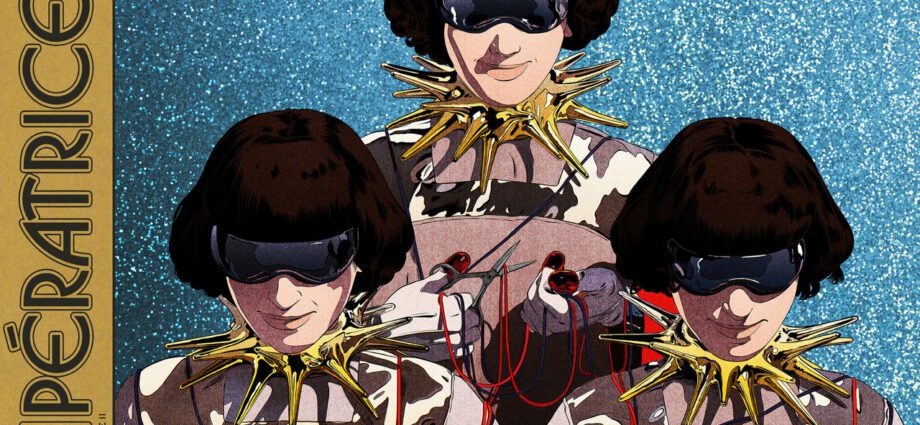Contents
Heart muscle disease, Tako-tsubo syndrome was first described in Japan in the 1990s. Although it is epidemiologically similar to a heart attack, it is not, however, linked to obstruction of the coronary arteries.
What is Tako-tsubo?
Prof. Claire Mounier-Véhier, cardiologist at Lille University Hospital, co-founder of “Agir pour le Cœur des Femmes” with Thierry Drilhon, manager and administrator of companies, gives us his explanations on Tako-tsubo. “The build-up of stress leads to emotional fragility, which can lead to paralysis of the heart muscle. The heart goes into a state of bewilderment at the event too many, which could have been trivial under other circumstances. It’s Tako-tsubo, broken heart syndrome, or stress cardiomyopathy. It manifests itself by symptoms similar to a heart attack, mainly in rather anxious women, more particularly at the time of menopause, and in people in a precarious situation. It is a cardiovascular emergency still too little known, to be taken very seriously, especially in this period of Covid ”.
Which are the symptoms of Tako-tsubo?
A situation of acute stress activates the sympathetic nervous system, triggering the production of stress hormones, catecholamines, which increase heart rate, increase blood pressure and constrict coronary arteries. Under the effect of a massive release of these stress hormones, part of the heart may no longer contract. The heart “balloons” and takes the shape of an amphora (Tako-tsubo means octopus trap in Japanese).
“This phenomenon is potentially a factor of acute left ventricular rhythm disturbances, which can cause sudden death, but also arterial embolism warns Professor Claire Mounier-Véhier. Acute stress is found in the vast majority of cases “. However, the good news is that this form of acute heart failure is most often completely reversible when cardiological care is early.
Tako-tsubo, women more sensitive to stress
According to a study conducted by researchers at the University of Zurich, published in 2015 in the journal “New England Journal of Medicine”, emotional shocks (loss of a loved one, romantic break-up, announcement of an illness, etc.) but also physical (surgery, infection, accident, aggression …) often associated with intense fatigue (moral and physical exhaustion) are triggers of Tako-tsubo.
Women are the first victims (9 women for 1 man)because their arteries are particularly sensitive to the effects of stress hormones and contract more easily. Menopausal women are all the more exposed to it because they are no longer protected by their natural estrogen. Women in precarious situations, with a heavy psychological burden, are also very exposed. “ Anticipate Tako-tsubo syndrome, by intensifying psycho-social support for these vulnerable women is essential in this period of the Covid, very difficult economically ”, underlines Thierry Drilhon.
Symptoms to look out for, for emergency care
Among the most common symptoms: shortness of breath, sudden pain in the chest mimicking that of a heart attack, radiating to the arm and jaw, palpitations, loss of consciousness, vagal discomfort.
“A woman over 50, postmenopausal, in a situation of rupture, should especially not underestimate the first symptoms linked to acute emotional stress, calls out Professor Claire Mounier-Véhier. Tako-tsubo syndrome requires emergency hospitalization, to avoid serious complications and allow treatment in intensive cardiological care units. The call of 15 is essential as in a myocardial infarction, every minute counts! “
If the symptoms are often very noisy, the diagnosis of Tako-Tsubo is a diagnosis of additional examinations. It is based on the joint realization of a electrocardiogram (unsystematic anomalies), biological markers (moderately elevated troponins), echocardiography (specific signs of a bloated heart), coronary angiography (often normal) and cardiac MRI (specific signs).
The diagnosis will be made on the joint analysis of these different examinations.
Tako-tsubo syndrome is most often completely reversible, within a few days to a few weeks, with the medical treatment of heart failure, cardiovascular rehabilitation and regular cardiological monitoring. The Taco-pillar syndrome rarely recurs, in around 1 in 10.
Tips to limit acute and chronic stress
To limit acute stress and chronic stress, “Agir pour le Cœur des Femmes” advises the maintenance of a quality of life through a balanced diet,no tobacco, the very moderate alcohol consumption. THE’physical activity, walking, sport, sufficient sleep are powerful solutions that can act as anti-stress “drugs”.
Good news ! ” By one positive and benevolent prevention, we can prevent 8 out of 10 women from getting into cardiovascular disease», Recalls Thierry Drilhon.
You can also use relaxation techniques through breathing, based on the principle of cardiac coherence available for free on the web or on mobile applications such as Respirelax, through the practice of mindfulness meditation and yoga….










